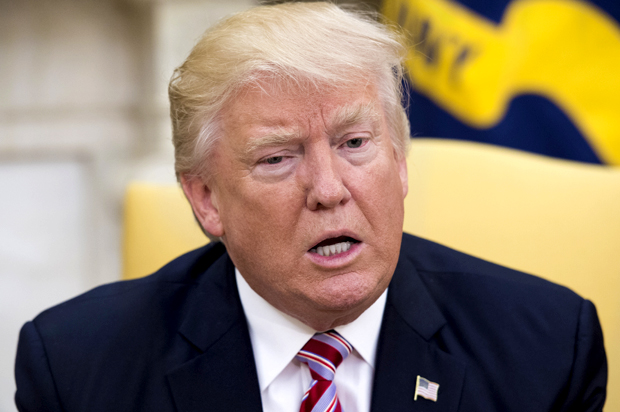A new report indicates that President Donald Trump’s blabbing of a highly classified secret to Russian officials has badly shaken at least one European ally’s confidence in America’s trustworthiness.
The Associated Press reports that a senior European intelligence official believes his country might stop sharing sensitive information with the United States government if it is proved that Trump shared highly classified information with Russian Ambassador Sergey Kislyak and Russian Foreign Minister Sergei Lavrov. The source is reported to have told the Associated Press that Trump’s actions could demonstrate “a risk for our sources” if they confide in the United States in the future.
[salon_video id="14767359"]It has been reported that the highly classified information in question pertained to the Islamic State using laptop computers on aircraft. This information had come into Trump’s possession due to the work of an ally — and it is reported that Trump’s disclosure of this information violated the confidentiality of their intelligence-sharing agreement.
National Security Adviser H. R. McMaster came to Trump’s defense on Tuesday, telling reporters at a press conference that Trump’s disclosure was “wholly appropriate to that conversation” and “consistent with the routine sharing of information between the president and any leader with whom he’s engaged.”
McMaster also claimed that “it was nothing that you would not know from open source reporting” and said he was not worried that America’s allies would be dissuaded from sharing intelligence with its government as a result of Trump’s actions.
Despite McMaster’s reassurances, former National Security Council senior director Eric Pelofsky told NBC News that “there is a process for sharing releasable intelligence with the Russians. For the president, it could take a few hours — and it would be sanitized in a way that would be respectful of the risk. And, likely as part of that process, our intelligence community would engage our intelligence partner so that we would not jeopardize the continuing flow of intelligence from them.”
Homeland Security Adviser Tom Bossert did not reach out to the CIA or National Security Agency until after Trump had shared his information with the Russian officials.


